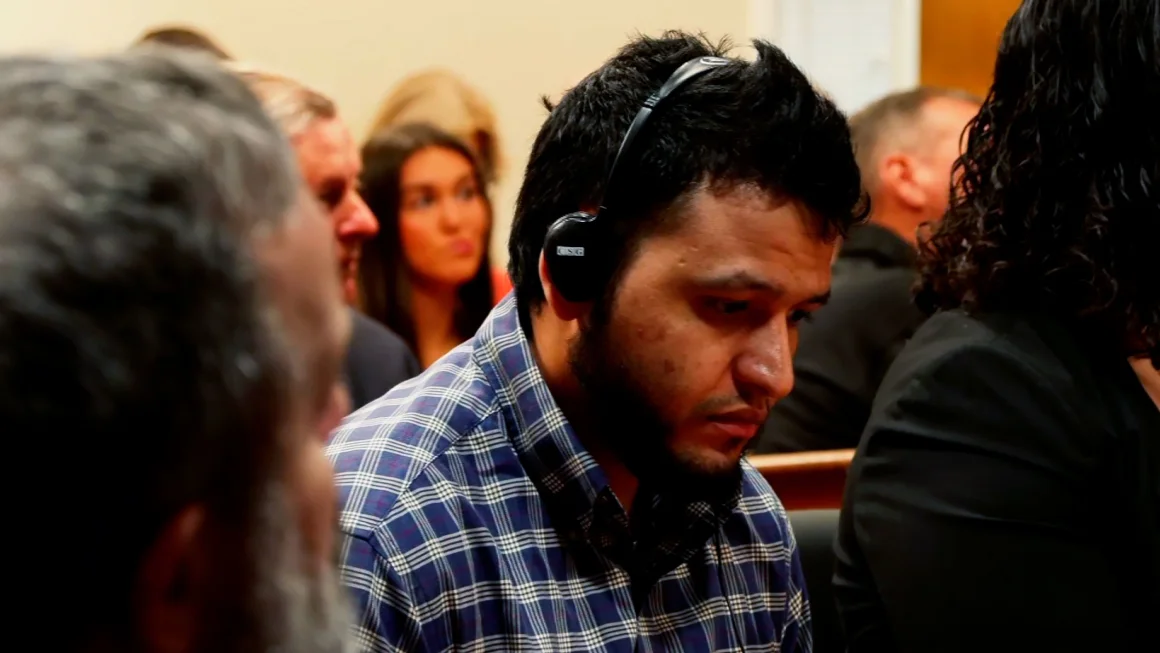A bench trial is one conducted solely by the judge, instead of the usual jury. The Seventh Amendment in the U.S. Constitution grants every U.S. citizen a right to trial by jury, but as was the case in this situation, it can also be waived. Because a bench trial usually proceeds faster than a trial by jury, there are certain advantages to it, including less fees, more flexibility in start and end times of proceedings, and few breaks. However, there are many disadvantages to it, as judges know the law, and will not flout the rules.
Ibarra appeared for a pretrial hearing Tuesday morning in Clarke County, Georgia, where he has been charged with multiple offenses, including malice murder, two counts of kidnapping with bodily injury, two counts of aggravated assault with intent to rape, two counts of aggravated battery, obstructing or hindering a person from making a 911 call, tampering with evidence, and being a “peeping Tom”.
During this hearing, Ibarra’s attorney informed the court that Ibarra requested a bench trial and wanted to waive his right to a trial by jury.
Previously in the case, Ibarra’s defense had filed motions to get evidence from cellphones suppressed, claiming that the evidence was obtained illegally by law enforcement. His defense also wanted to suppress testimony from a witness who performed DNA testing at Riley’s autopsy, alleging that the results “did not exclude the defendant, but also did not exclude another known individual associated with the case.”
Ibarra had also tried to get the “peeping Tom” incident excluded from his case, which originated from an event where Ibarra supposedly went to a residence on the University of Georgia’s campus and “peeped through” a window, where he “spied upon” a university staff member. Prosecutors argued that these two incidents were “inextricably intertwined”, and the court eventually ordered this charge to not be severed from the case.
Riley was killed on Feb. 22, 2024, on a jog at the University of Georgia in Athens, Georgia. At around noon, Riley’s roommate reported her disappearance to the University of Georgia police after she hadn’t returned. Later that day, Riley’s body was found in Oconee Forest Park, her cause of death being blunt force trauma and asphyxiation. According to warrants, the attack occurred somewhere between 9 a.m. and 1 p.m., during which Riley had called 911.
Riley’s father claimed that the suspect “might not have been here” had the border been secure. This case has also been used as a political example by former President Bill Clinton, during a campaign visit to Georgia on behalf of Vice President Kamala Harris.
Clinton claimed that Harris was “the only candidate who has endorsed a bill that would hold down immigration any given year to a certain point and then made sure we gave people a decent place to live, didn’t divide people from their children.” If immigrants were “properly vetted,” cases like these “probably wouldn’t have happened,” Clinton added.
The sparked debate over the border crisis continues, and has even been the cause for the Laken Riley Act passed in March of 2024. This act gives ICE and state governments more tools to fight against “illegal alien crimes”, as well as allows ICE to detain “illegal aliens” for theft related crimes. The actions of Ibarra will forever live in the hearts of Americans, especially the families affected by similar crimes that could have been prevented.









